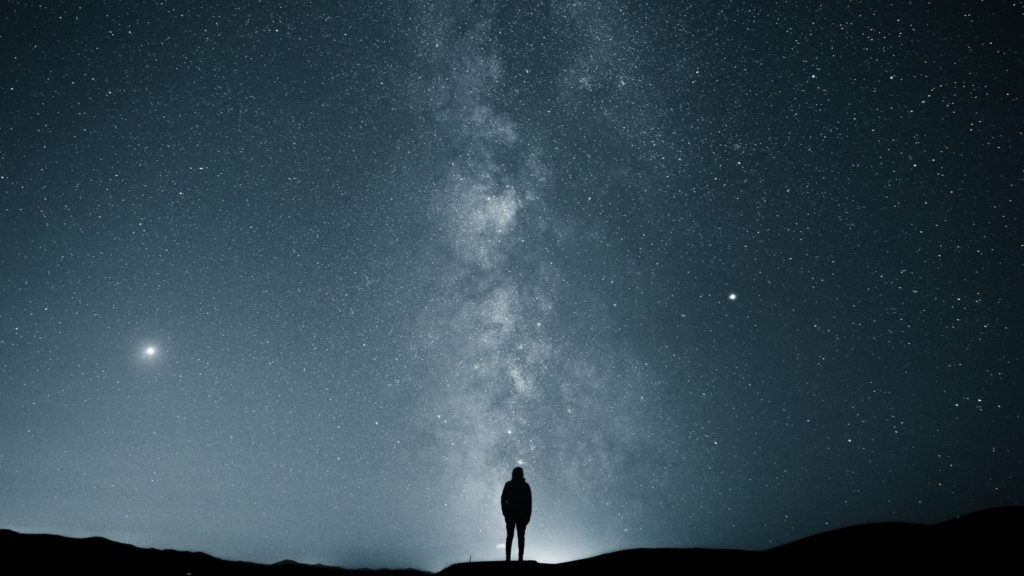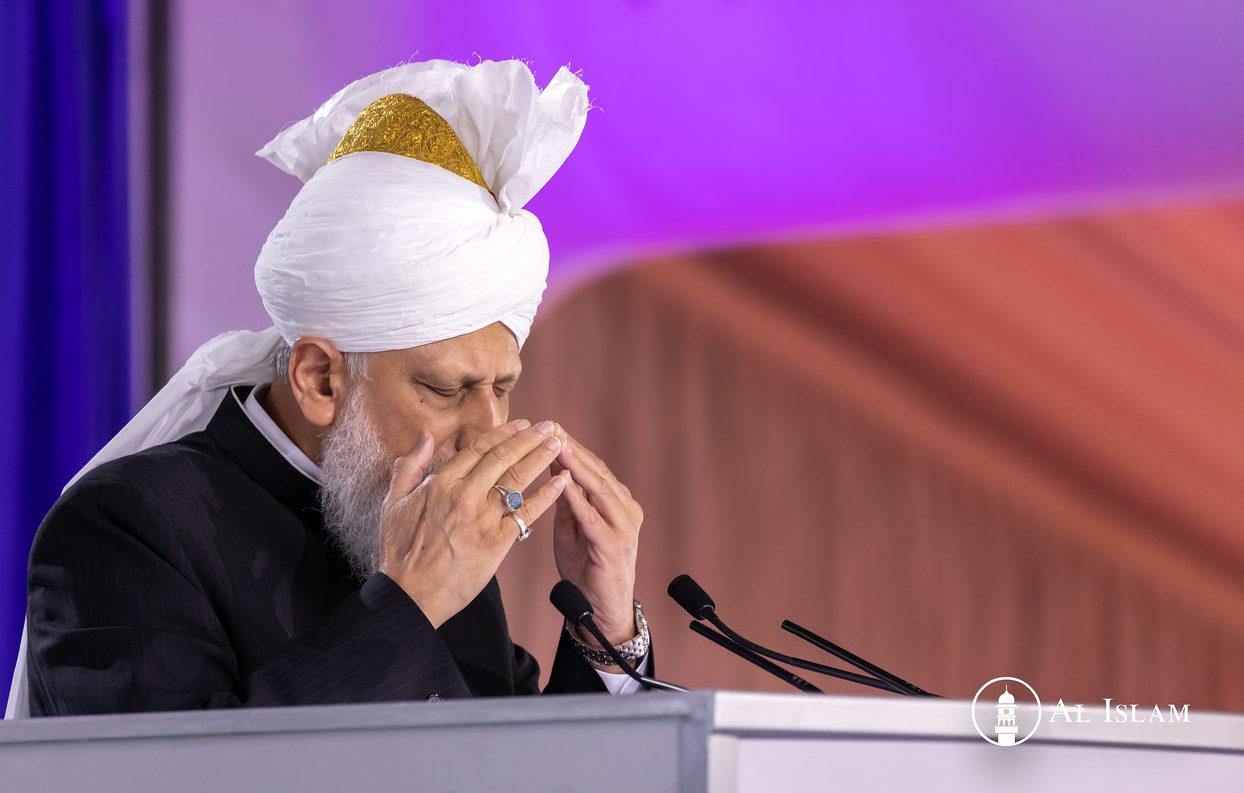To believe in God is not merely conceptual at all. If it were only a concept like that of other scientific concepts, it could have been thought that reflection on it would do no good to man, nor would it harm him if it is left unthought-of.
This article originally titled “Daivavichinthanam (God: An Analysis)” first appeared in the December 1937 and January 1938 issues of ‘Satyadoothan’ magazine and is translated from Malayalam by B M Arif Mohammed.
MOULANA B ABDULLAH H. A.
AUGUST 25, 2020
The existence of God is an issue of much heated argument between theists and atheists. There would hardly be any issue more significant and serious than this.
All religions in the world hold to the existence of God whereas the self-claimed rationalists assert that belief in an invisible God, Who cannot be perceived by means of external sense organs, is a grave error of man. It is a mistake, they say, to believe that such a Being exists.
A person of unbiased thinking might naturally be inclined to think whether or not this question, so fundamental to any faith, needs to be reflected upon. Especially for an atheist this question is of primary concern.
When it becomes clear that knowing the truth of this matter is highly beneficial while ignoring it can be ruinous, any thinking man will admit that the question needs to be contemplated.
We ponder over a matter depending on its gains and losses. When it is proved that perceiving the truth of a matter is beneficial for man, rejecting which will bring forth his ruin, it is highly essential to know the reality of it. If God does exist, we cannot help admitting the fact that belief in Him would be highly meritorious for us whereas spurning Him would be like bringing our own peril.
To believe in God is not merely conceptual at all. If it were only a concept like that of other scientific concepts, it could have been thought that reflection on it would do no good to man, nor would it harm him if it is left unthought-of.
But if God really exists, belief in Him will affect all physical, spiritual and other-worldly aspects of life. The contemplation on Him will lead to our advancements of all kinds turning away from which will only aggravate our miseries. Hence the existence of God must indeed be thought about. Moreover, our conscience and reason ever incite us to reflect on this matter.
The conscience of each and every man, if it is not rendered inactive due to his bad discipline and fellowship, will always be reminding him that there ought to be a God, Who is the Creator and the Controller of this universe.
The thought that emerges from the deep recesses of our hearts is that if there is someone who has created us, there must also be an object for the fulfilment of which we have been created, and which is much beyond the mere fulfilling of carnal desires.
For the time being, I don’t intend to explain what the solution our conscience has set forth for this question. Suffice is to say that the inspirations regarding God which arise from within us are so often that it is too difficult to be neglected.
It is, therefore, highly essential for man to ponder over it, as our conscience already draws us to the question of God’s existence, the neglect of which would be tantamount to killing our own conscience.
Human reason, too, lays bare this fact before us; nay it is human reason that leads us to this question more unambiguously than does the human conscience. If there happens to be a God Who has created us for a certain object and we die without even shedding a stray of thought on the purpose of creation, we would then be bringing our own doom. Our reason, therefore, time and again, insists us to know whether or not God exists.
Did we come to this world by ourselves? Are we created just for having these transient worldly pleasures? Is this huge, wonderful structure of infinite diversity that we see with our eyes our own creations? Is this universe which is still on course beyond all the wisest laws, created by chance? Such are the questions that keep emerging for our reasoning. To find a true solution for these questions, the concept of God needs to be reflected upon.
My intention here is not to state what the human conscience and reason have proposed to solve these questions, but to reiterate that since the human conscience and reason bring this question to us significantly, it should, by all means, be thought about. Is there a Being that created us? If so, how is He like? Of what characters and qualities is He? If He is our creator, is there an object behind this creation? If yes, how to attain it?
No one will venture to say that the contemplation of queries such as these is far from any benefit of man. If, then, anyone says that there is no need to realize God, that would be far from any logic.
In addition, all religions teach that this question is worth a serious consideration. Not only do all religions emphasize on it, but the very foundation of all religions rests on the existence of God. All religions sprouted from divine revelation, thus making hundreds of millions of people adhere to it.
So, however interpolated had all religions been in later times, the answer they give to this question is same. Moreover, the solution given by our conscience and reason as to whether or not God exists is consolidated by religions.
That is to say, the solution supported by the nature and conscience of man conforms to the fact that there exists a God, the Creator and the Designer of universe and this assumption is most emphatically ascertained by religions alone.
Despite the doctrinal differences, all religions preach alike that this universe has a Creator Whose sovereignty encompasses us all, and that our life on this earth is a means to attain God for which He Himself has given us directions.
They also teach that there is a life after death in which man will be accrued based on his deeds. These unanimous teachings of all faiths lead a man to think that the question of God should indeed be reflected upon, compelling him to comprehend the truth about it.
If what religions taught about God is true, the neglect and negation of such a Being would be a great loss to man, while knowing Him and setting up a constructive relationship with Him would be his greatest achievement ever in this world. In fact, this issue of serious concern pertaining to God’s existence should never be neglected.
Now let me tell you a little about how to analyse the concept of God. If we go in for something without knowing the right means to achieve it, then surely, all our efforts will go futile. If, for instance, a boy, with an ambition to achieve great academic success, goes to field for cultivation instead of joining any school and studying the syllabus thoroughly, he is surely not to fulfil his aim.
Thus, for every achievement, there is proper means to tread upon. Unless we tread upon the true means, our efforts will bear no fruits. This is the law of nature that we see at work everywhere. In spiritual and analytical approach of God, too, we should use its proper means.
It is no denying the fact that our achievements are closely related to our intentions. The result of anyone’s efforts depends upon his intentions. If, for instance, a person reads a book with the intention of knowing the gist of that book and another one approaches it critically, although both are reading the same book, the results of both readings will not be the same.
Similarly, the result one derives from the analysis of God varies with his intention and thought. The intention of a philosopher and that of a hermit will not be the same in so far as their quest for God is concerned.
Since their intentions and thoughts are different, the experience they would derive will be different as well. As far as the philosopher is concerned, he concentrates on the origin of universe and observes whether it is created by someone and accepts what he can decipher from it.
His intention is limited only to philosophically exploring the universe and finding out whether or not this universe possesses a Creator. He has nothing to do with how He is like, how He is related to man and what means are there to attain Him.
But for the hermit, he wanders about in quest of God wishing to have a contact with Him. His relationship with God becomes stronger and stronger and thus achieves the pleasure of God. He then submits himself to the will of God, sacrificing all worldly pleasures he had once been indulged in.
As the intentions of both aforementioned men are not the same, though their exploration is to achieve the same God, their experience would be different as well.
Hence the deliberation of God is, no doubt, a necessity, but here, our intention and approach to it should be like that of the hermit, not of the philosopher. Only then would we have the certainty of the existence of God and be able to move in the right path.
If our analysis of God confines just to exploring His existence, with no eagerness to know Him and to be able to attain Him and we consider it as a mere philosophical discovery, the true knowledge of Him will no longer be accessible to us and we will be far from achieving the goal of life. Further, not striving for God with all one’s heart and soul even after realizing His existence would account to ruining ourselves.
The late author was a prominent Ahmadiyya missionary who played a significant role in spreading Islam Ahmadiyyat throughout Kerala, Tamil Nadu and Sri Lanka. He was a renowned scholar and a prolific writer, having authored around 15 books and above 100 articles.












0 Comments